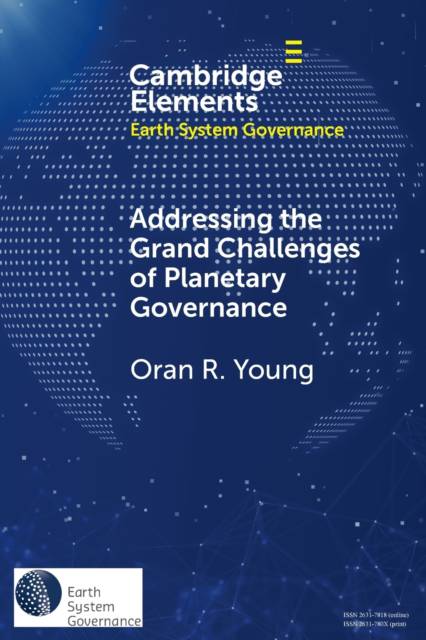
- Afhalen na 1 uur in een winkel met voorraad
- Gratis thuislevering in België vanaf € 30
- Ruim aanbod met 7 miljoen producten
- Afhalen na 1 uur in een winkel met voorraad
- Gratis thuislevering in België vanaf € 30
- Ruim aanbod met 7 miljoen producten
Zoeken
Addressing the Grand Challenges of Planetary Governance
The Future of the Global Political Order
Oran R Young
€ 31,95
+ 63 punten
Omschrijving
The world today confronts unprecedented needs for governance having profound implications for human well-being that are difficult - perhaps impossible - to address effectively within the prevailing global political order. This makes it pertinent to ask whether we must assume that the global order will continue during the foreseeable future to take the form of a state-based society as we think about options for addressing these challenges. Treating political orders as complex systems and drawing on our understanding of the dynamics of such systems, the author explores the prospects for a critical transition in the prevailing global political order. Individual sections analyze constitutive pressures, systemic forces, tipping elements, the effects of scale, the defining characteristics of potential successors to the current order, and pathways to a new order. In the process, seeking to make a more general contribution to our understanding of critical transitions in large political orders.
Specificaties
Betrokkenen
- Auteur(s):
- Uitgeverij:
Inhoud
- Aantal bladzijden:
- 75
- Taal:
- Engels
- Reeks:
Eigenschappen
- Productcode (EAN):
- 9781009272476
- Verschijningsdatum:
- 9/02/2023
- Uitvoering:
- Paperback
- Formaat:
- Trade paperback (VS)
- Afmetingen:
- 152 mm x 229 mm
- Gewicht:
- 108 g

Alleen bij Standaard Boekhandel
+ 63 punten op je klantenkaart van Standaard Boekhandel
Beoordelingen
We publiceren alleen reviews die voldoen aan de voorwaarden voor reviews. Bekijk onze voorwaarden voor reviews.











